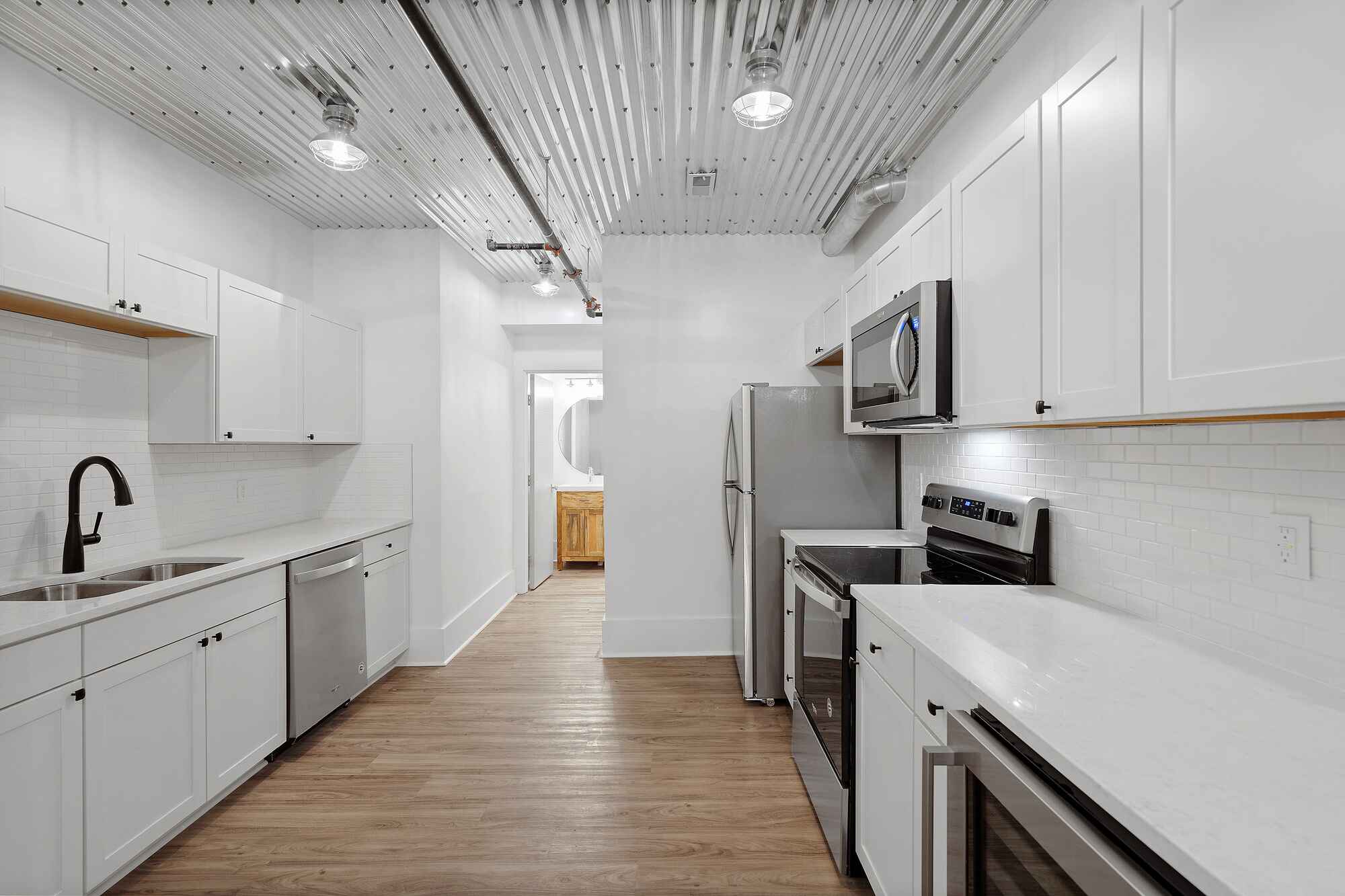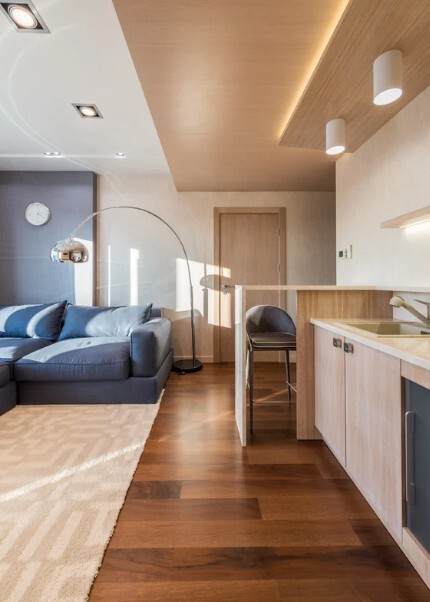The Ultimate Guide to Building an ADU or DADU in Pittsburgh & Beyond
Accessory Dwelling Units (ADUs) and Detached Accessory Dwelling Units (DADUs) are becoming increasingly popular in Pittsburgh and surrounding areas. As families grow, housing prices rise, and multigenerational living becomes more common, many homeowners are looking for creative ways to add value, flexibility, and functionality to their properties. At Shannon Staley & Sons, we are seeing a surge of interest in ADUs and DADUs from homeowners across the region who want to make the most of their space.

This guide is designed to walk you through everything you need to know about building an ADU or DADU in Pittsburgh. From costs and permitting to design features, uses, and timelines, we’ll help you understand what to expect and how to prepare for this exciting project.
| What is an ADU or DADU? |
| Why Homeowners in Pittsburgh are Choosing ADus and DADUs |
|
Most Expensive Elements of Building and ADU or DADU in Pittsburgh |
What Is an ADU or DADU?
An ADU (Accessory Dwelling Unit) is a secondary living space added to an existing residential property. It typically includes a kitchen, bathroom, sleeping area, and its own entrance. An ADU can be attached to your home, such as a converted basement or garage apartment, or it can be built as a separate structure in your backyard.
A DADU (Detached Accessory Dwelling Unit) is exactly what it sounds like: a fully separate, standalone structure on the same property. Think of it as a small cottage, guesthouse, or backyard home.
Both ADUs and DADUs are self-contained units that can serve a variety of purposes, from providing space for family members to generating rental income.
Why Homeowners in Pittsburgh are Choosing ADUs and DADUs
There are several reasons why Pittsburgh homeowners are drawn to ADUs and DADUs:
- Housing flexibility: Whether it’s aging parents, adult children, or guests, an ADU provides comfortable living space without requiring a move.
- Rental income potential: With rental demand on the rise, ADUs can provide steady supplemental income.
- Increased property value: A well-designed ADU or DADU can add significant resale value.
- Creative use of land: Instead of leaving a backyard unused, homeowners can maximize their property with a functional living space.
- Sustainability: Smaller, efficient homes often reduce energy consumption and support sustainable living.
Average Costs of Building and ADU or DADU in Pittsburgh
One of the first questions homeowners ask us is: “How much does it cost to build an ADU or DADU in Pittsburgh?”
The truth is that costs vary depending on size, finishes, site conditions, and whether the unit is attached or detached. Here are some general ranges specific to Pittsburgh and nearby communities:
- Attached ADU (like a basement or garage conversion): $90,000 to $175,000+
- New DADU (standalone backyard cottage): $200,000 to $350,000+
- Luxury or custom features: $350,000 and above
These numbers reflect complete, turn-key projects with kitchens, bathrooms, plumbing, electrical, and high-quality finishes. While conversions of existing spaces tend to fall at the lower end, new construction with custom details will push costs higher.

The Most Expensive Elements of Building an ADU or DADU in Pittsburgh
When budgeting, it’s important to know which parts of an ADU or DADU project tend to be the most expensive:
- Foundation work: For DADUs especially, excavation and new foundations can represent a major cost. In Pittsburgh, where soil conditions and slopes vary widely from neighborhood to neighborhood, the type of foundation you’ll need can range from a simple slab to a complex, reinforced system. Excavation, waterproofing, and grading add to costs, particularly on older lots or hillsides.
- Utility connections: Extending water, sewer, electrical, and gas lines is often more complicated than homeowners expect. If the distance from your home to the new structure is long, trenching can add thousands of dollars. In some parts of Pittsburgh, tying into older infrastructure may also require upgrades, which drives up expenses.
- Kitchens and bathrooms: These are the heart of livability in any ADU, and they’re also the costliest spaces to build. High-quality cabinetry, tile work, durable countertops, plumbing fixtures, and appliances quickly add up. Since many ADUs are compact, every inch counts, which often leads to custom solutions that carry a higher price tag.
- Permitting and design: Professional architectural plans and engineering aren’t optional; they’re required for approval in Pittsburgh. Beyond the upfront design fees, you’ll also need to budget for city permits and potential variances. While these costs don’t show up as bricks and mortar, they are crucial for getting your ADU or DADU built legally and safely.
- Site conditions: Sloped lots, tight alley access, or unstable soil can require creative engineering solutions and specialty equipment. For example, a backyard with limited access for machinery may require smaller equipment and more manual labor, which increases both time and cost.
Understanding these cost drivers helps homeowners make informed decisions and prioritize their budget from the beginning.
Permitting and Zoning for ADUs in Pittsburgh
Pittsburgh has been making strides in encouraging ADUs, but zoning and permitting can still be complex. Here are a few things to know:
- Zoning restrictions: Not every property is zoned to allow ADUs or DADUs. Lot size, setbacks from property lines, and height limits often determine whether a unit can be built. Some zoning districts are more flexible than others, and certain neighborhoods may require specific reviews.
- Building permits: You’ll need permits for structural, mechanical, electrical, and plumbing work. Each trade may require its own inspection, so it’s important to work with a contractor who understands how to coordinate the process with the city.
- Utility approvals: Sewer and water connections must be approved before construction begins. In older Pittsburgh neighborhoods, undersized or outdated sewer lines can create challenges that need to be resolved before the project moves forward.
- Parking requirements: In some neighborhoods, zoning requires one or more off-street parking spaces for each ADU. This can affect your design and may reduce usable yard space.
- Neighborhood variances: In historic districts or communities with conservation guidelines, additional approvals may be required for exterior design, building placement, or materials. This process can extend your timeline and add to soft costs.
Our team works closely with Pittsburgh’s Department of City Planning to ensure that every ADU or DADU project complies with local codes from day one.
Realistic Timelines for ADU and DADU Projects
Building an ADU or DADU is not a weekend project. From initial planning to move-in day, homeowners should expect the process to take several months:
- Planning and design (2 to 4 months): This stage includes site evaluation, initial drawings, architectural plans, and discussions with the city about zoning. During this time, you’ll finalize the scope of work and start preparing your budget.
- Permitting (1 to 3 months): Once your plans are ready, they’re submitted for approval. Depending on the complexity of the project, the review process can involve multiple city departments. This stage can move quickly if everything is straightforward, but variances or neighborhood approvals can add time.
- Construction (6 to 9 months): This phase includes everything from excavation and foundation work to framing, utilities, finishes, and final inspections. The construction phase can vary widely depending on the size and level of customization in your ADU or DADU.
In total, most Pittsburgh ADU or DADU projects take between 9 and 15 months from start to finish.
Factors That Can Affect Your Timeline
Every project is unique, but here are some factors that can extend or shorten the timeline:
- Permit delays: City departments often face backlogs, especially during peak building seasons. If variances are needed, hearings can extend the process by several months.
- Weather conditions: Pittsburgh winters can slow down or temporarily halt exterior construction. Frozen ground, snow, and rain can all impact scheduling.
- Site challenges: Sloped lots or limited access for equipment can require more time for excavation, deliveries, and staging.
- Material lead times: Specialty materials like custom cabinetry, stone countertops, or unique windows can take weeks or months to arrive, potentially holding up progress.
- Scope changes: Homeowners who decide to upgrade finishes or add new features mid-project often extend both timeline and budget.
By planning ahead and working with an experienced contractor like Shannon Staley & Sons, you can anticipate challenges and keep your project on track.
Key Features of Pittsburgh ADUs and DADUs
When designing ADUs and DADUs in Pittsburgh, we often recommend features that make sense for our local climate, lifestyle, and property types:
- Energy efficiency: Insulated windows, modern HVAC, and efficient layouts keep utility costs low and ensure year-round comfort in Pittsburgh’s four-season climate.
- Durable materials: Given the freeze-thaw cycles and humidity, durable siding, roofing, and flooring materials will help your ADU last for decades with minimal maintenance.
- Smart storage: Compact living requires creative solutions. Built-in shelving, under-stair drawers, and multi-purpose furniture maximize usability without clutter.
- Private entrances: Separate entries create independence for family members or renters and make the unit feel more like its own home.
Outdoor living space: Adding a deck, patio, or small porch can dramatically increase livability, especially when square footage inside is limited.

Common Uses for ADUs and DADUs in Pittsburgh
Pittsburgh homeowners are using ADUs and DADUs in creative ways. Some of the most popular include:
- Rental income unit: Many homeowners build ADUs to create long-term rental opportunities or to host short-term guests through platforms like Airbnb. This provides steady income that can offset the cost of construction.
- In-law suite: As multigenerational living becomes more common, ADUs offer privacy and independence for aging parents while keeping them close by.
- Guest house: A backyard cottage can provide a welcoming, private retreat for out-of-town family or friends without disrupting your main household.
- Home office or studio: With remote work becoming a norm, an ADU provides a distraction-free environment for work or creative pursuits such as music, art, or writing.
Future retirement home: Some homeowners plan ahead by downsizing into the ADU later in life and renting out their main home for additional income.
Other Considerations Before Building an ADU or DADU in Pittsburgh
Before you commit to building, here are a few additional things to think about:
- Financing: Explore home equity loans, construction loans, or cash-out refinancing. It’s important to work with lenders who understand ADU projects, since not all do.
- Property taxes: Adding an ADU or DADU will likely increase the assessed value of your property, which means your annual property taxes will rise. Factor this into your long-term budget.
- Insurance: Not all insurance policies automatically cover ADUs. Talk to your provider about updating your policy to include the new dwelling and its potential use as a rental.
- HOA restrictions: If you live in a neighborhood with a homeowners association, check the rules. Some HOAs limit or prohibit ADUs.
- Long-term goals: Think about how your needs may change over time. What works for rental income now might later serve as a retirement suite or workspace. Planning with flexibility in mind ensures your ADU will adapt as your lifestyle evolves.
Why Work With Shannon Staley & Sons
At Shannon Staley & Sons, we know that building an ADU or DADU in Pittsburgh takes more than construction skills. It requires local knowledge, careful planning, and a team you can trust. Our design-build approach simplifies the process by handling design, permitting, and construction under one roof, keeping your project efficient and stress-free.
We’re proud of our craftsmanship, attention to detail, and commitment to treating every project as if it were our own home.
Conclusion
Pittsburgh is a city full of opportunity for real estate investors and multi-family property owners. With its mix of historic homes, strong rental demand, and relatively low cost of entry, it's one of the best markets in the country for remodeling and repositioning multi-unit properties.
Whether you're updating a single duplex or tackling a full building renovation, a thoughtful, well-executed remodel can increase your property’s value, attract quality tenants, and boost your long-term return on investment. With the right team in place, your property can transform into a high-performing asset in one of Pittsburgh’s most promising neighborhoods.
If you’re ready to explore what’s possible for your multi-family property, the Shannon Staley & Sons team is here to help. Contact us today for a consultation—we’d love to hear about your project and help bring your vision to life.

